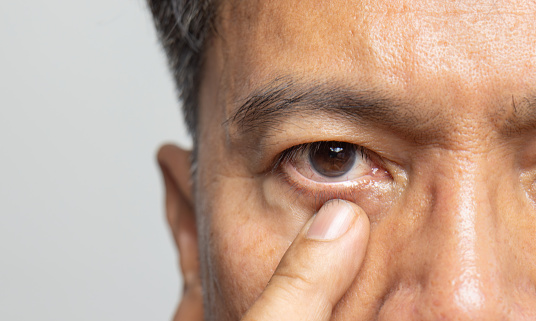The eyes are a window to your systemic (overall) health. Optometrists must consider your overall health status to understand how your health can impact your eyes and vision.
These common diseases can affect your eyes:

The eyes are a window to your systemic (overall) health. Optometrists must consider your overall health status to understand how your health can impact your eyes and vision.
These common diseases can affect your eyes:
Diabetes is well recognized as a systemic condition with potential for ocular involvement. In fact, it is the leading cause of blindness in working adults. The likelihood of vision issues correlates directly to the length of time since diagnosis; a 10% chance of ocular complications after 15 years and 75% chance of ocular manifestations after 20 years. Whether or not you are treated with insulin and your overall glycemic control are also correlated to the likelihood of diabetic eye disease.
Patients with hypertension are commonly encountered since about 30% of Americans have this diagnosis. Uncontrolled hypertension increases the risk of several ocular conditions including retinal artery and vein occlusions, non-arthritic ischemic optic neuropathy, and retinal hemorrhaging. Hypertension also increases the risk of age-related macular degeneration, thyroid eye disease, and diabetic retinopathy. Based on case history, time since diagnosis will be investigated by your eye doctor along with compliance to treatment regimen and additional risk factors such as alcohol/tobacco use and family history.
Hyperlipidemia is very common among patients since approximately 30% of Americans have this condition. It is often concurrent with diabetes and/or hypertension. Cholesterol plaques can be extremely dangerous because they can break off (often from the carotid artery) and travel to distal retinal arterioles where they block blood flow. If you are experiencing this, you may observe transient vision loss (amaurosis fugax) along with transient ischemic attack (TIA).
Autoimmune and inflammatory diseases such as systemic lupus erythematosus and rheumatoid arthritis can affect your eyes. In addition, others such as spondyloarthropathies, sarcoidosis, Sjogren’s syndrome and inflammatory bowel disease can exhibit the same or similar presentations. Vision issues can range from ocular surface disease to posterior segment disease; therefore, your eye doctor will keep this medical history in mind throughout the entirety of your eye exam.
Roughly 60% of patients with a history of stroke have some form of residual vision impairment. If you have had a stroke, you may have visual field defects. By testing your visual field function, the eye doctor can gain information about where the infarct (area of dead tissue due to blood vessel blockage) occurred and important information about how you may be functioning.
Thyroid gland disorders have an incidence of almost 20% in women and 13% in men. Grave’s disease (which leads to hyperthyroidism) and Hashimoto’s thyroiditis (which leads to hypothyroidism) are the two most common thyroid conditions. Thyroid Eye Disease (TED) is an autoimmune condition where ocular tissue is attacked; it is most associated with hyperthyroidism but can also be present with euthyroid (normal thyroid state) or hypothyroid states.
Diabetes, hypertension, high cholesterol, neurologic disease, autoimmune disease, and thyroid disease are a few of the more commonly encountered systemic health conditions you may be diagnosed with. It is important for our eye doctors to take the information gathered through your medical history and know the clinical correlations so that we can ask you if you are experiencing any specific signs or symptoms that may suggest vision issues due to these health conditions.